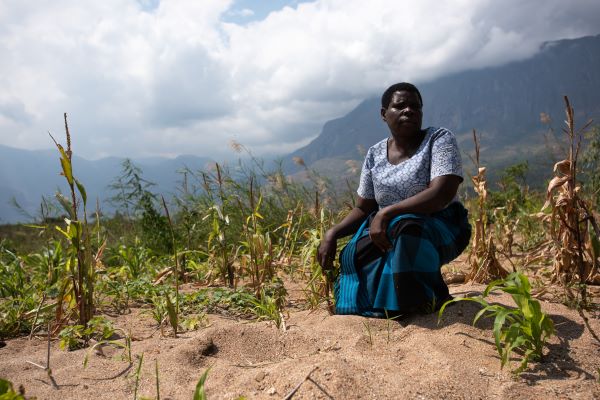A new groundbreaking reinsurance fund called ‘One Acre Fund Re’ is set to provide a critical financial safety net for 1 million smallholder farmers in 2024, scaling steadily thereafter.
Announced in partnership with the International Finance Corporation, U.S. International Development Finance Corporation and the African Risk Capacity, this new resource will leverage One Acre Fund’s on the ground presence and rigorous data gathering to design insurance products and direct payouts in a way that more effectively responds to farmer experiences. One Acre Fund aims to scale the scheme to 4 million farmers by 2030, helping to bolster the long-term resilience of smallholders in the region.
More than 2 billion people worldwide rely on subsistence farming. This group is disproportionately affected by the devastating impacts of the climate crisis. Predictive models foresee rising temperatures (0.5 to 2.5°C) and erratic rainfall across the Sub-Saharan Africa region – with a higher likelihood of droughts, floods and soil erosion.
Despite these increasing risks, affordable agri-insurance is only available in 4 out of 54 countries across Africa, and currently, only 3% of farmers have insurance coverage for their farms. African smallholders, who face significantly more income shocks and extreme weather events, consequently must make do with far less financial protection than their Western counterparts.
Annie Wakanyi, Director of Global Government Partnerships, at One Acre Fund, commented: “Smallholder farmers make up one of the most climate-vulnerable populations on the planet, facing increased frequency of climate events with devastating consequences on yields and household stability. This insurance offer has the potential to provide smallholder families with a strong safety net when these events occur; yet current market failures mean that most insurance products are too expensive or too limited in coverage to support meaningful resilience. But it doesn’t have to be this way.
Agricultural insurance can support lasting impact and resilience for small-scale farmers. With economic growth from agriculture 11 times more effective at reducing extreme poverty than any other sector in sub-Saharan Africa, One Acre Fund Re aims to support smallholder families to achieve long-term poverty reduction and resilience.”
One Acre Fund will be hosting an event today in The Food Systems Pavilion at COP28 in Dubai to build fluency and excitement about insurance as an underutilised tool in the climate resilience toolkit. The event will explore how insurance safety nets connect to broader discussions on implementation of the Loss and Damage Fund and other climate finance streams.
Marchel Gerrmann, Ambassador for Business and Development Cooperation of the Netherlands, stated: “When climate shocks hit, like the devastating cyclone we saw earlier this year in Malawi, farmers have no safety nets to fall back on. They are forced to pull children from schools they can no longer pay for, take out high-interest loans, sell assets, and endure protracted hunger.
One Acre Fund Re aims to transform the way financial entities support smallholders and all profits will be used to increase impact and decrease climate risk.”
The Netherlands Ministry of Foreign Affairs has been a strategic long-term partner of One Acre Fund since 2016 and recently extended its support up till 2027.
Social enterprise One Acre Fund supports smallholder farmers to build more food secure, climate resilient and prosperous communities. It takes an adaptation-first approach by sharing climate-smart farming practices with smallholders to increase farm yields sustainably and diversify income streams, and by providing safety nets to ensure financial stability. During COP28, they are issuing a call to global governments, policymakers, investors and the general public to engage with and invest in smallholders.
Johannes Borchert, Global Head of Risk & Resilience at One Acre Fund, added: “We are planning to roll out One Acre Fund Re in 2024 to five out of nine country programs. From year one, it will benefit over 1m farmers across Africa. As this facility grows, we will extend our services to farmers in all our areas of operation and beyond. We believe the data, experience and underwriting capacity we bring should be extended to offer climate safety nets to as many smallholder farmers as possible.”









The proposed will be a beneficial tool to Farmers if well trained on the need
Comments are closed.